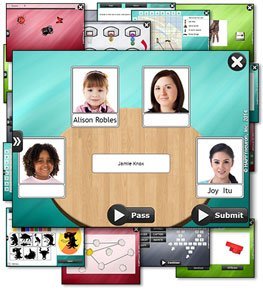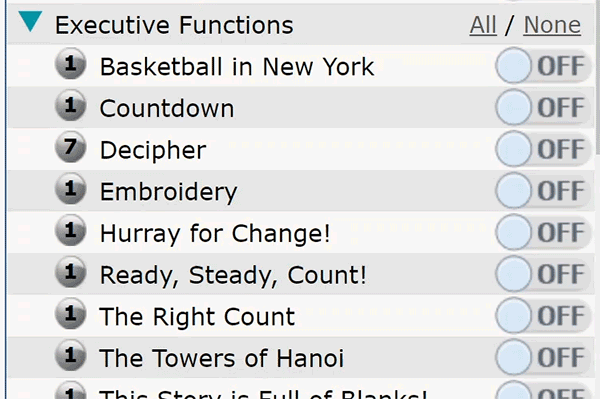How to Keep Patients Engaged
Therapists all over the world struggle to keep their patients engaged. Certain medical conditions such as depression, ADHD, and brain injury can cause attention and learning deficits that can interfere with how the treatment is received. However, the problem is not always the patient, but the resources or tools being used during therapy. Clinicians should look into factors such as user experience, generalizability, and appropriate difficulty of material as variables to adjust if they are struggling with patient engagement. A way to increase patient engagement without investing in thousands of workbooks would be to adapted a digital tool.
A digital tool has the ability to improve user experience, provide material that is transferable to everyday life and can be adapted according to a patient’s level of functioning. HappyNeuron Pro is a digital therapy tool that clinicians can use to provide engaging cognitive therapy for their patients.
Here are 3 reasons patients do not engage with their therapy
and how HappyNeuron Pro may help:
Materials being used are not stimulating to hold attention:
Paper and pencil materials are often used to practice cognitive skills. However, these materials can feel like schoolwork causing individuals to lose interest. To solve this problem, clinicians can use HappyNeuron Pro which offers stimulating material in a game-like format. This format may help holds a patient’s attention during therapy sessions. The exercises can be done on a desktop, laptop, or tablet. This allows the patient to control how they access and engage with the material for optimal engagement.
Patients do not see the real-world application of their therapy:
Some activities can seem too abstract for patients, causing them to not see the value of performing the activity. Clinicians can have difficulty explaining abstract material, as some paper concepts may be too high level for severe patients to understand. HappyNeuron Pro’s activities have direct translation value to clients’ lives. For example planning steps to complete a task, remembering faces, and identifying an outlier in a series of objects. With high generalizability to everyday life, clinicians can explain the HappyNeuron Pro exercise being performed and its value to everyday life to a client in a matter of minutes.


Print Materials are not always accessible to patients:
Using material that provides an adequate challenge is essential for a patient’s learning and rehabilitation. Assessing the difficulty of print materials may be difficult, as some items in a workbook may be challenging for one person and too easy for another. With HappyNeuron Pro, clinicians can choose exercises from every cognitive domain and customize their level of difficulty at the click of a button.
- A sliding difficulty scale along, with a description of the different parameters for each exercise, allows clinicians to understand how challenging an exercise will be for a patient before they have a patient perform it.
- Difficulty settings can be modified at any time to provide more or less of a challenge, depending on circumstances.
While these are just a sample of reasons why patients do not engage in therapy, HappyNeuron Pro offers digital solutions to these common problems. We want to help clinicians maintain their patient’s motivation and focus during therapy. When patients can extract more benefits, during cognitive rehabilitation therapy and learn important cognitive skills for everyday life, their overall success increases.
Many clinicians have made the switch from traditional materials to using our platform to provide stimulating and engaging cognitive therapy. Some of our users have used HappyNeuron Pro for over 33,000 hours with their clients!
To see how you can keep your patients engaged and work with them to build their cognitive skills, try HappyNeuron Pro with your patients today for free!









